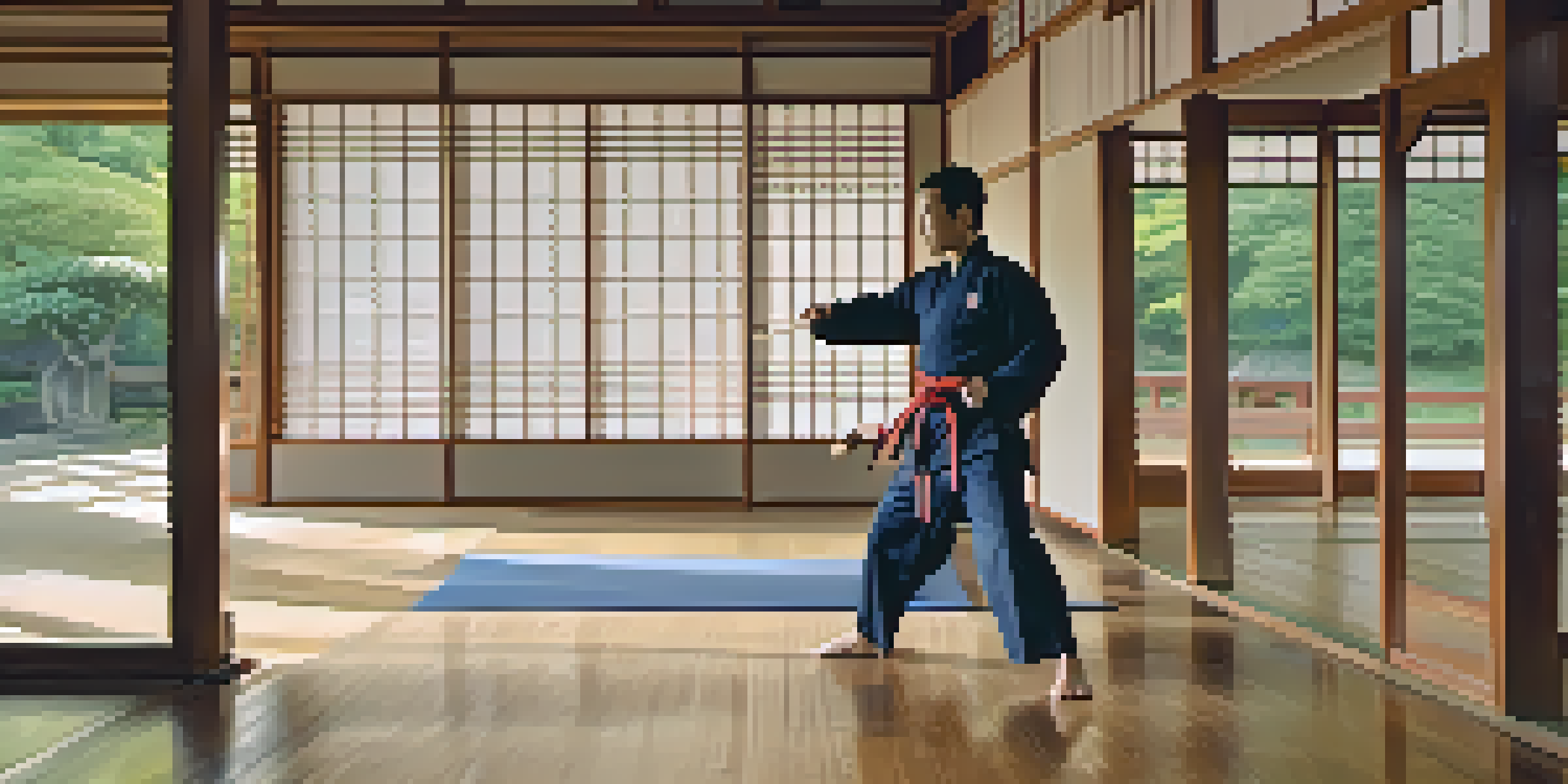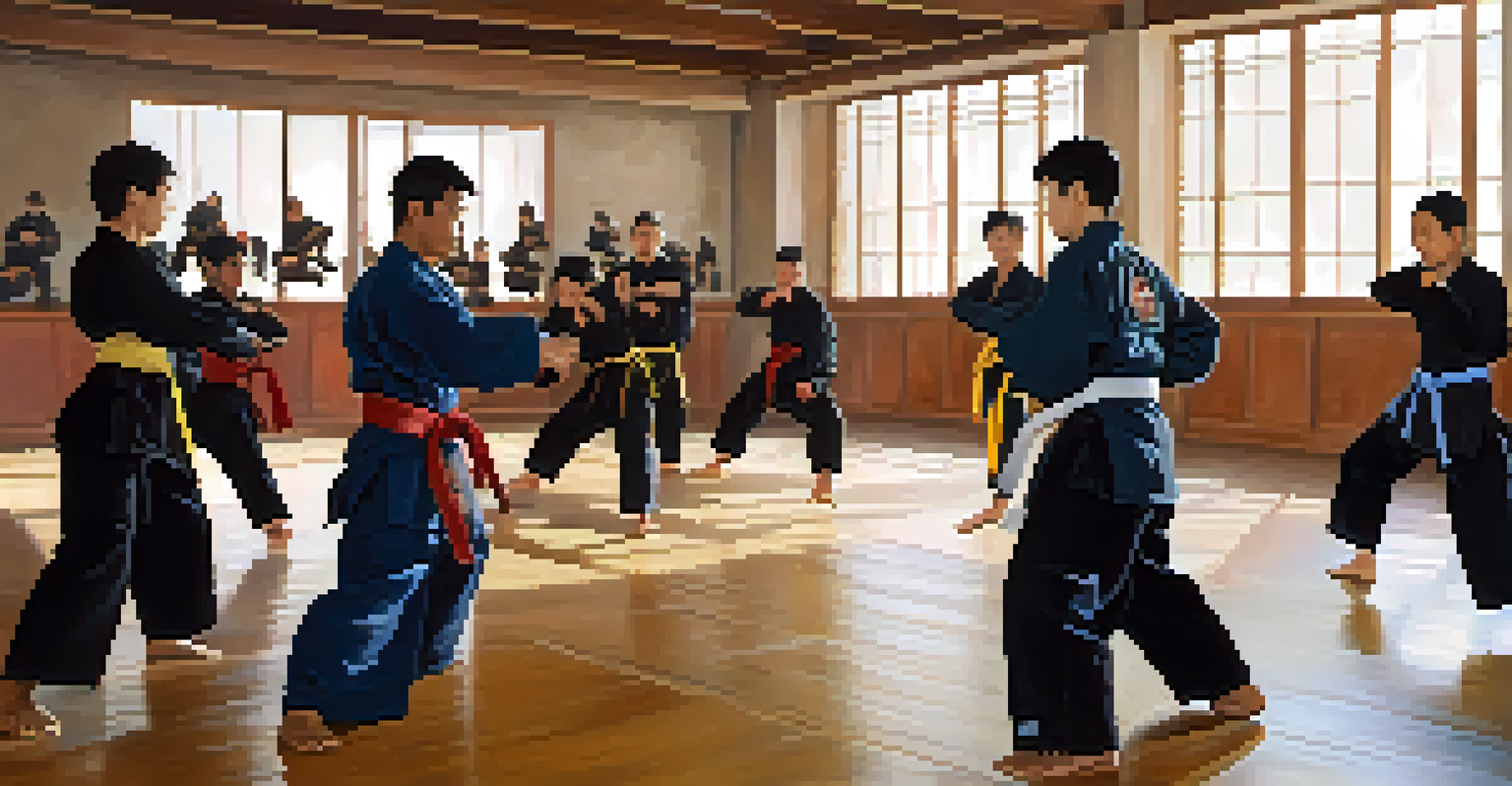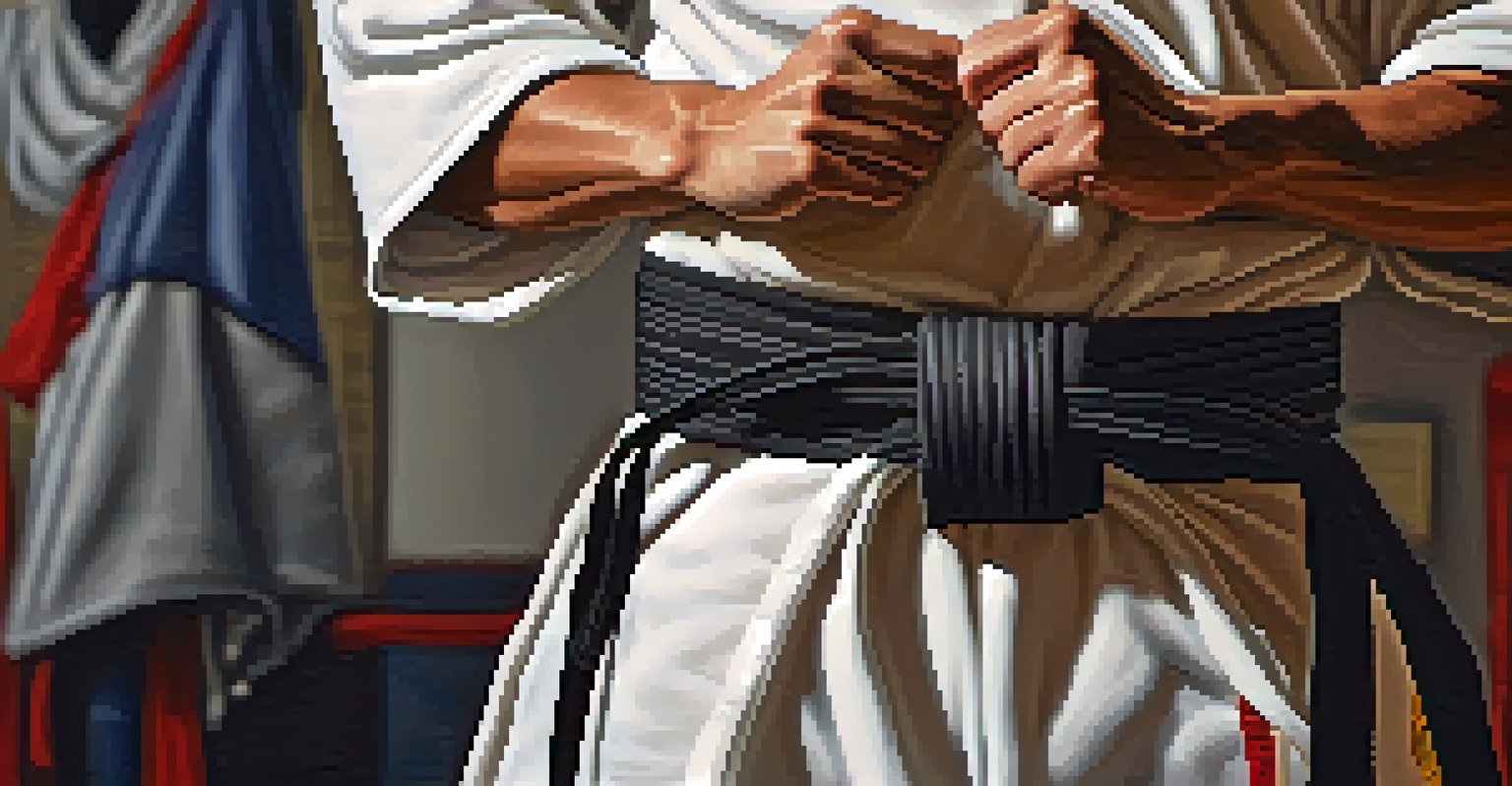Stress Management Through Discipline: The Martial Arts Way

Understanding Stress and Its Impact on Daily Life
Stress is a common experience for many, manifesting in various forms such as anxiety, irritability, and physical ailments. It can stem from work pressures, personal relationships, or even daily responsibilities. Recognizing how stress affects our lives is the first step towards effective management.
It's not the load that breaks you down, it's the way you carry it.
When left unchecked, stress can lead to serious health issues, impacting both mental and physical well-being. For example, chronic stress can contribute to conditions like heart disease and depression. Therefore, finding a constructive way to manage stress is crucial for maintaining a balanced lifestyle.
Martial arts offer a unique approach to tackling stress through discipline and self-control. By engaging in martial arts, practitioners can learn to channel their stress into focused energy, turning negative feelings into positive actions.
The Role of Discipline in Martial Arts Practice
Discipline is at the core of martial arts training, serving as a foundation for skill development and personal growth. It requires commitment, consistency, and a willingness to push through challenges. This structured environment fosters resilience and helps practitioners develop a strong sense of self.

In martial arts, discipline goes beyond physical training; it encompasses mental fortitude as well. Practitioners learn to set goals, maintain focus, and practice patience, all of which are essential for overcoming obstacles in both training and everyday life. This mental discipline is crucial for managing stress effectively.
Stress Management Through Martial Arts
Practicing martial arts helps individuals channel stress into focused energy, improving both mental and physical well-being.
The continual practice of discipline in martial arts transforms not just the body but also the mind. It teaches individuals to respond to stressors with calmness and clarity, ultimately leading to better decision-making and emotional regulation.
Meditative Aspects of Martial Arts for Stress Relief
Many martial arts incorporate elements of meditation and mindfulness, which are powerful tools for stress management. These practices help individuals shift their focus away from stressors and cultivate a sense of inner peace. For instance, movements in Tai Chi are often performed in a slow, deliberate manner, promoting relaxation.
The mind is everything. What you think you become.
Through meditation techniques, martial artists learn to observe their thoughts without judgment, which can help in reducing anxiety. This mindful approach allows practitioners to acknowledge their stress without becoming overwhelmed. Such moments of reflection are vital for mental clarity and emotional balance.
Incorporating these meditative practices into daily routines can lead to significant improvements in stress levels. Even a few minutes of deep breathing or visualization can create a calm state of mind, making it easier to handle life's pressures.
Physical Activity as a Stress Reliever in Martial Arts
Engaging in physical activity is a well-known method for alleviating stress, and martial arts provide an excellent outlet. The rigorous training sessions not only enhance physical fitness but also release endorphins, which are natural mood lifters. This makes martial arts a fun way to combat stress while getting in shape.
Practicing martial arts also allows individuals to channel their frustrations into constructive movements. Whether it’s through punching, kicking, or sparring, releasing pent-up energy can be incredibly cathartic. It’s like hitting a reset button on your emotions.
Discipline Builds Resilience
The discipline learned in martial arts fosters resilience and mental fortitude, essential for managing life's challenges.
Furthermore, the sense of community found in martial arts classes can also provide support and camaraderie, making it easier to navigate stressors. Sharing experiences with fellow practitioners fosters a sense of belonging, enhancing overall emotional well-being.
Setting Goals and Achieving Mastery in Martial Arts
Setting goals is an integral part of martial arts training, whether it’s earning a new belt or mastering a specific technique. These goals provide direction and motivation, allowing practitioners to see their progress over time. Achieving these milestones can significantly boost self-esteem and reduce feelings of stress.
Through this process, individuals learn the importance of persistence and hard work. Facing and overcoming challenges in martial arts translates into resilience in other areas of life. This mindset can be incredibly beneficial when dealing with external stressors, enabling individuals to tackle problems head-on.
Moreover, the satisfaction of achieving a goal can create a positive feedback loop, encouraging further engagement in martial arts. This cycle of goal-setting and achievement helps maintain motivation and focus, which are essential for effective stress management.
Building Self-Confidence Through Martial Arts Training
Martial arts training fosters a strong sense of self-confidence, which can be a powerful antidote to stress. As individuals learn new skills and techniques, they gain a sense of accomplishment that bolsters their self-esteem. This newfound confidence can make everyday challenges seem more manageable.
As practitioners become more skilled, they often find themselves facing fears and anxieties head-on. Whether it’s sparring with a partner or performing in front of a class, these experiences build courage and resilience. This increased confidence can lead to a more positive outlook on life, reducing stress levels overall.
Mindfulness Enhances Clarity
Incorporating meditation and mindfulness from martial arts promotes emotional balance and helps reduce anxiety.
Furthermore, self-defense skills can provide a sense of security, knowing that one can protect themselves if necessary. This empowerment can alleviate stress related to personal safety and increase overall peace of mind.
Integrating Martial Arts Principles into Daily Life
The principles learned in martial arts can be seamlessly integrated into everyday life to enhance stress management. For instance, the discipline, focus, and resilience cultivated through training can be applied to work and personal relationships. This integration helps maintain a balanced mindset even when faced with challenges.
Practitioners can utilize techniques such as mindfulness and goal-setting outside the dojo. Whether it's taking a moment to breathe deeply during a stressful meeting or setting achievable goals in personal projects, these martial arts principles serve as valuable tools for stress reduction.

Ultimately, embracing the martial arts philosophy can lead to a more mindful and intentional way of living. By incorporating these lessons into daily routines, individuals can create a lifestyle that promotes well-being and effectively manages stress.